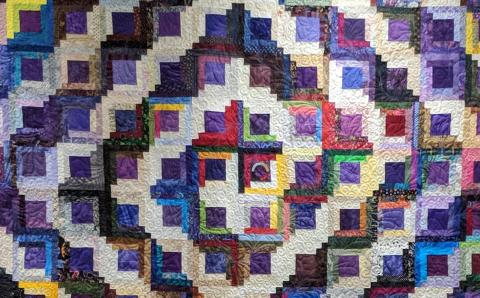Pedro the Lion was the band for the people who needed them most. The band was led by an artist who was reacting specifically and diligently to the questions and concerns of a small but distinct group of people—indie-rock fans in the late 1990s who were at varying points in their faith in God. Pedro the Lion complicated the binary pop-culture climate in which the sacred and secular were being sold as mutually exclusive. The band’s songs were not secular or sacred; God was just as present in the lines questioning war, politics, or economic injustice as in the lines confessing faith.
From its formation in 1995, David Bazan was the band’s sole creative force. He wrote and arranged all of the songs, which were then brought to life for albums and tours by a rotating cast of musicians. So when Pedro the Lion dissolved in 2005, it was not due to a personnel change or a fundamental shift in Bazan’s creative process; it was due to a crisis of faith.
After years of increasing anxiety and anguish that were amplified during an era where Christianity and nationalism were becoming indistinguishable in certain contexts, Bazan’s hope in the God he was brought up to believe in was spent. He began releasing music about his dissolution of faith under his own name, comprehensively relieving himself of the burden of everything the name Pedro the Lion had come to mean and that he could no longer stand behind.
After 15 years, Pedro the Lion is back with a new album called Phoenix. Phoenix is a concept album about Bazan’s hometown sparked by a timely visit to the city during a long and difficult tour. The songs are each therapeutic memorials, reflections on the past that reveal themselves to be just as much about the present. The listener is taken through landmarks of his upbringing—his first two-wheeled bike, a schoolyard act of betrayal, the gas station down the road—that work to build the landscape of the city that raised him.
Bazan sings as if the lyrics are in bold text, his voice and prose always clear and in focus. The words he’s singing are unmistakable, which is often where his music gets its power; in a David Bazan album there is no way to avoid hearing what he’s saying—even in the darkest, most bitter passages. On Phoenix, his steady narration and clear articulation of memory provides information that the music works to interpret. The lyrics of a song like “Model Homes” may talk about the contrived artifice of a suburban open house, but the panoramic guitar work shows that for him, such homes are about more than clean carpet and bowls filled with fake fruit—they represent the promise of something better.
Throughout the album, the economic instrumentation of guitar, bass, and drums provide the perfect range to give Bazan’s memories distinction while maintaining the consistency needed to maintain a sense of place. There is no clutter in the arrangements, just precision. The intentionality of the songwriting on Phoenix preserves a delicacy that has the potential to turn into cutting and driving rock songs even with their modest tempos.
Phoenix feels like respite. It lacks much of the vinegar and spite that have colored much of Bazan’s work. In this visit to his home, Bazan is able to sustain feelings or hopes that he hasn’t been able to in a long time—it feels like “someone is finally listening,” he says in the song “Tracing the Grid.” It’s a comfort that feels real, but there is also a sense that it is not guaranteed to be permanent. Visits come to an end, and, left to linger, memories can turn from warm comforts to reminders of why you left in the first place.
It is not right or helpful to read David Bazan’s return to Pedro the Lion as his return to God. Just as it was fruitless to try and split Pedro the Lion’s past work into its sacred and secular pieces, keeping score on his doubt and his hope is reductive. On Phoenix something is found, and if it may not be forever, at least it is for now.
“How will you finally know when you’re home?” sings Bazan on the album’s final song “Leaving the Valley.” It feels like a hopeful and nervous push towards permanence, a fitting way to end an unlikely trip back to an old place using an old name. (Polyvinyl)
About the Author
Jordan Petersen








